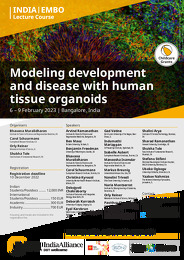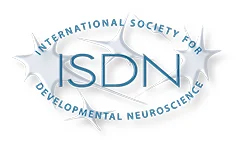About the India-EMBO Lecture Course
The India-EMBO Lecture course on "Modeling development and disease with human tissue organoids" will bring together researchers working on diverse systems using interdisciplinary approaches to develop organoids to address critical questions of human development and disease. This will be the first meeting in this field to be organized in India. We encourage interested students and postdocs to participate regardless of which area they are currently working in.
Major themes will include neural (neocortex, hippocampus, hypothalamus, retina) and non-neural (kidney, pancreas, skeletal muscle) organoids with a focus on technological advances in bioengineering, imaging, and transcriptomic and epigenomic analyses, which have led to unparalleled new insights into organ function. A key topic of discussion will be the use of organoids to model disease conditions, such as cancer and neurological diseases.
The meeting will emphasize training, interaction, and mentorship. A special session will focus on career guidance, diversity, inclusion, and work-life balance, followed by round table mentorship conversations in small groups. An additional session on biomedical ethics in scientific situations is included.
Participants are encouraged to submit abstracts based on their current work, even in a field different from organoid biology. All poster presenters will give 2-minute flash talks describing their posters, and eight abstracts will be selected for platform presentations. Submission of an abstract is required for consideration for a travel award.
Image credits: Cerebral organoid derived from human pluripotent stem cells by Vorapin Chinchalongporn, Fermisk Saleh, Schuurmans Laboratory (Sunnybrook Research Institute, Toronto, Canada)
About EMBO Courses and Workshops
EMBO Courses and Workshops are selected for their excellent scientific quality and timelines, provision of good networking activities for all participants and speaker gender diversity (at least 40% of speakers must be from the underrepresented gender).
Organisers are encouraged to implement measures to make the meeting environmentally more sustainable.






